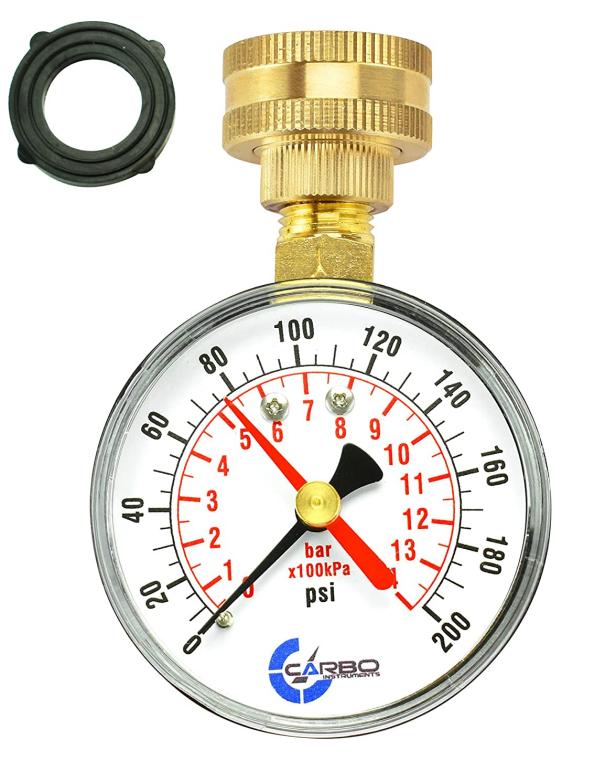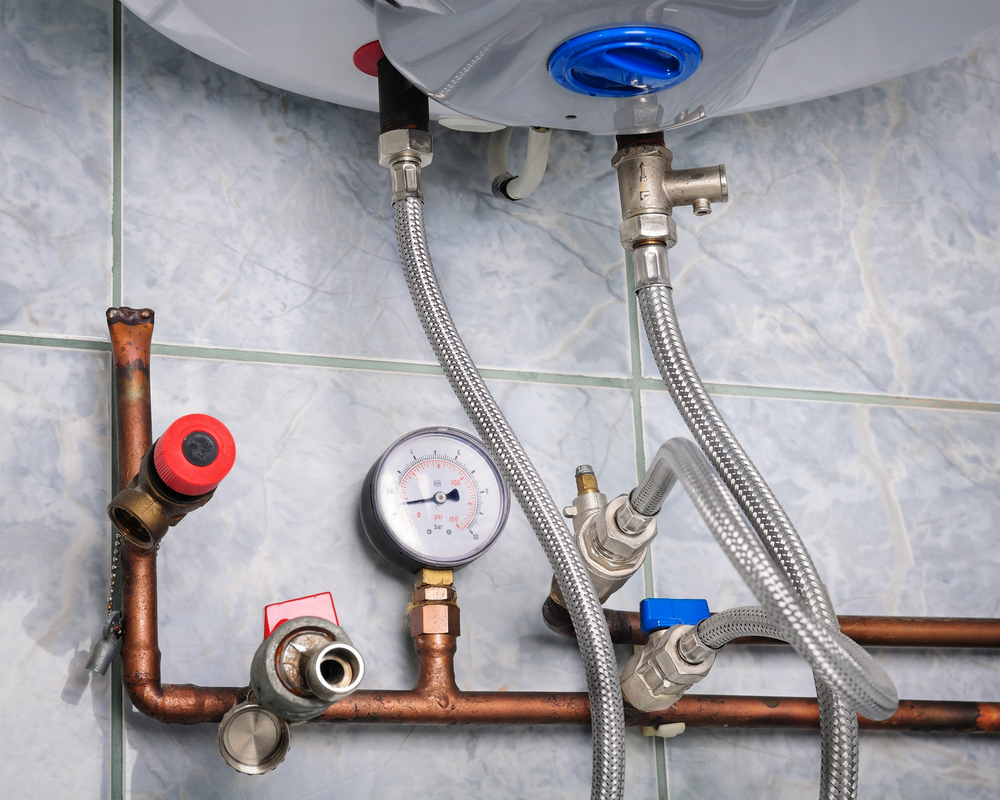Best Approaches for Rectifying Low Water Pressure in Your Home
Best Approaches for Rectifying Low Water Pressure in Your Home
Blog Article
Just about everyone may have his or her own theory about 10 Reasons for Low Water Pressure in Your House.

Low tide stress in your home can be an aggravating issue, impacting whatever from bathing to cleaning dishes. If you're experiencing weak water circulation, there are a number of possible reasons and options to explore. In this overview, we'll go over common factors for low tide stress and useful steps to address the problem efficiently.
Intro to Low Tide Pressure
Low tide stress happens when the circulation of water from your faucets, showers, and various other components is weak than normal. This can make everyday jobs much more difficult and less reliable. Comprehending the root causes of low water stress is vital to discovering the appropriate option.
Usual Reasons For Low Tide Pressure
Pipeline Obstructions
Gradually, pipes can come to be clogged with mineral deposits, sediment, or debris, limiting the circulation of water. This is a common concern in older homes with galvanized steel pipelines.
Deterioration
Corrosion within pipelines can result in leaks and reduced water pressure. Rust buildup can tighten water flow, specifically in maturing plumbing systems.
Faulty Pressure Regulators
Stress regulatory authorities are accountable for keeping consistent water pressure in your home. If they malfunction, it can result in low tide pressure or unequal circulation throughout your house.
Local Water Issues
Occasionally, the trouble exists outside your home. Metropolitan supply of water issues, such as main line leaks or upkeep work, can momentarily minimize water pressure in your area.
Just How to Detect Low Water Pressure
Checking Faucets and Components
Begin by examining the water stress at different faucets and components throughout your home. If the problem is isolated to specific areas, it might suggest localized troubles.
Evaluating Pipelines
Check noticeable pipelines for signs of leakages, rust, or obstructions. Pay attention to any uncommon sounds, such as knocking or rattling pipelines, which might show problems within the plumbing system.
Consulting with a Plumber
If you're unable to identify the root cause of low water pressure, take into consideration employing a professional plumber to conduct a comprehensive examination. They can identify underlying concerns and recommend suitable solutions.
DIY Solutions to Take Care Of Low Tide Pressure
Cleaning Aerators and Showerheads
Natural resources can gather in aerators and showerheads, lowering water circulation. Remove and clean up these parts routinely to boost water pressure.
Flushing Water Heater
Sediment accumulation in the water heater can restrict flow and decrease effectiveness. Purging the tank periodically assists get rid of debris and maintain ideal efficiency.
Checking Pressure Regulator
Ensure that the pressure regulator is functioning properly. Changing or replacing the regulator can aid recover appropriate water stress throughout your home.
Cleaning Clogs in Pipes
For minor blockages, try utilizing a plumbing snake or chemical drain cleaner to clear obstructions in pipes. Be cautious when utilizing chemicals and follow security guidelines.
When to Call a Professional Plumber
If do it yourself initiatives fall short to deal with the issue or if you presume substantial plumbing problems, it's best to seek assistance from a qualified plumber. They have the experience and devices to address complicated issues safely and successfully.
Preventive Measures to Keep Water Pressure
Routine Upkeep
Schedule regular maintenance for your plumbing system to prevent issues such as corrosion, leaks, and obstructions. Dealing with minor troubles early can aid avoid even more substantial repair services later on.
Setting Up a Stress Booster
Take into consideration mounting a stress booster pump to improve water pressure in locations with constantly reduced flow. This can be particularly useful for multi-story homes or properties with high-demand fixtures.
Surveillance Water Use
Be mindful of water use behaviors and stay clear of ill-using the plumbing system. Basic adjustments, such as incredible showers and laundry lots, can assist keep adequate water stress.
Verdict
Dealing with low tide pressure can be aggravating, however identifying the underlying reasons and carrying out appropriate solutions can restore ideal flow throughout your home. Whether it's cleansing aerators, checking pipelines, or speaking with a plumber, taking aggressive actions can guarantee a constant supply of water for your daily needs.
How to Fix Low Water Pressure In Your Home
Municipal Water Supply Issues
Scheduled maintenance, high demand, and water main breaks are all potential causes for low water pressure within a city or county’s water lines. While there’s not much you can do to personally fix a problem with your city or county’s water supply system, you can play a big role in documenting the issue and alerting those who can.
How to fix it:
Ask your neighbors if they are experiencing any issues with low water pressure. If multiple homes are affected, it’s likely related to the city’s water line.
Contact the local Water Authority to see if there is any maintenance taking place that might be affecting your supply. Also let them know of your specific issues. If other homeowners report the same issues, they’ll know that there could be a larger issue to look into.
Faulty Fixtures
A damaged or clogged shower head, faucet or appliance is the first thing we’d suggest checking, especially if low water pressure appears to be isolated to a specific area of your home.
How to fix it:
First, turn off the main water supply to your home.
Check the affected appliances for build-up or debris. In the case of a faucet, you can simply unscrew the aerator at the tip of the faucet. Showerheads should be fully detached from the water pipe.
While the appliances are detached, you may want to check the water supply to determine if the fixtures were in fact the issue.
To clean, soak the showerhead or aerator in vinegar and brush off any visible debris.
Reattach the fixtures and check the water pressure again. If it is still low, there is likely a deeper issue at hand, which can be determined by a professional plumber.
Pipe Obstructions
Mineral deposits, rust or other debris within water pipes can lead to blockages or corrosion over time.
How to fix it:
When you think of a clog, you probably think of a drain clog. While there are many DIY solutions to clearing a drain, clogs in a water pipe will almost always require the help of a professional plumber. A plumber will be able to locate the affected pipe and clean out any debris or mineral deposit buildup. In severe cases, the pipe may need to be replaced. Your plumber might also recommend a water softening system to remove the minerals from your home’s water supply that can contribute to pipe blockages over time.
Plumbing Leak
Undetected water line leaks can divert water away from your residential pipes, reducing the water pressure in your fixtures.
How to fix it:
Check your water meter by turning off all water sources and monitoring the meter for any movement, which could be a clear indicator of a potential leak.
Check all visible pipes for signs of leaking, including water stains, active dripping or damp spots around the pipe.
Inspect fixtures, including faucets and showerheads, for any drips.
Test the pressure but recording the pressure with the main water valve shut off. Leave off for a few hours and test again. A significant drop in pressure is a clear sign of a leak.
https://kiddcoplumbing.com/plumbing-blog/how-to-fix-low-water-pressure/

How to Fix Low Water Pressure In Your Home
Municipal Water Supply Issues
Scheduled maintenance, high demand, and water main breaks are all potential causes for low water pressure within a city or county’s water lines. While there’s not much you can do to personally fix a problem with your city or county’s water supply system, you can play a big role in documenting the issue and alerting those who can.
How to fix it:
Faulty Fixtures
A damaged or clogged shower head, faucet or appliance is the first thing we’d suggest checking, especially if low water pressure appears to be isolated to a specific area of your home.
How to fix it:
Pipe Obstructions
Mineral deposits, rust or other debris within water pipes can lead to blockages or corrosion over time.
How to fix it:
When you think of a clog, you probably think of a drain clog. While there are many DIY solutions to clearing a drain, clogs in a water pipe will almost always require the help of a professional plumber. A plumber will be able to locate the affected pipe and clean out any debris or mineral deposit buildup. In severe cases, the pipe may need to be replaced. Your plumber might also recommend a water softening system to remove the minerals from your home’s water supply that can contribute to pipe blockages over time.
Plumbing Leak
Undetected water line leaks can divert water away from your residential pipes, reducing the water pressure in your fixtures.
How to fix it:
https://kiddcoplumbing.com/plumbing-blog/how-to-fix-low-water-pressure/
I stumbled upon that blog post on while doing a lookup on the internet. Do you know about anybody else who is involved in the topic? Why not promote it. Thank you for going through it.
Get Started Report this page